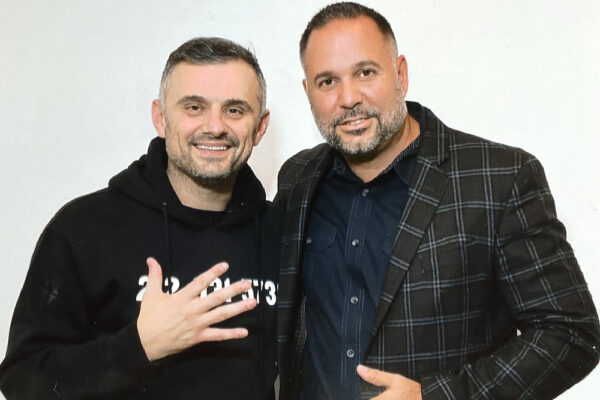Hi Amit, and thank you for accepting the interview. Tell us a little about yourself.
Amit: Thank you for having me. I’m Amit, 23 years old from Israel. I’m a professional software & web developer/consultant, via my consulting firm called bWitty, and currently I’m the Founder & CEO of Taykey, a stealth-mode startup in the field of semantic technologies.
You started your company at the age of 14. What was about?
Amit: I’ve always been interested in software, and later web development. I really enjoy building things, and see them work. So early on, I started building pieces of software and websites that somehow with time became a search engine, called WittySearch.
WittySearch, which is now called bWitty, was started as a personal website and quickly became a meta-search engine that helped users get results from many search engines. You have to remember, it was the pre-Google domination era, and there were a lot of search engines, so WittySearch had a significant user’s community. Most of the company’s business was technology leasing and websites developments. Since I always wanted to improve my skills and I still enjoy creating new stuff for personal interest, I did it as a hobby, for fun – not as a business.
In the meanwhile you are involved in 2 other projects, can you name them?
Amit: I always enjoy hearing about and participating in new ideas in ventures, I find it exciting. But, I know it’s important to stay focus in the things I do. So, Taykey, the startup company which was mentioned before is my primary work place. Like most startups we work crazy hours all week long.
But through bWitty, my freelance\consulting firm, I can work with other businesses and take an active part in more projects. I try to take as many projects as my schedule allows me, and for that I employ a small talented team of developers to give our cutomers a great and personal service to fulfill all their needs, we do a lot of websites and small software projects.
The last, but not least, is PakPaka, which is plainly a web-comics venture that I’m a part of with Gil Cohen, a talented artist and a good friend from school days.
So do you consider yourself a serial entrepreneur?
Amit: Well, I can certainly hope so! I enjoy the process of taking an idea and see it turns into a real product that actual people use. It’s a great feeling to know that millions of people use your creation!
How did you start your first company? Did your family support your ideas?
Amit: Naturally, my family supports everything I do. They were and are the first beta users of all my ideas! My entire family loves to hear my ideas, and review them – both at the concept stage and at the product stage.
My first company was an organic growing company from a personal website into a search engine that I developed. Since most business came from website and web tools development no staff was needed or any major expenses. One of the first website I created was for Adrienne Wilkinson, an actress from Xena: Warrior Princess – after that, it was much easier to get people look at my portfolio.
What is most challenging when starting a company when you are so young?
Amit: Even, now that I’m 23. It’s sometimes hard for investors to take you seriously. But luckily since the days of Facebook & Google, people better appreciate the young entrepreneurs.
Do you think that education/ school had something to do with your entrepreneurship experiences?
Amit: I can’t be really sure, in school I sought to study the stuff that I found interesting, and obviously it improved my skills and thought me a lot. But to be entrepreneur it is important just to try and have a hands-on experience, you can never be prepared for the roadblocks along entrepreneurs trying to clear them yourself.
But how did you manage to talk with the customers? Did you have any problems being so young?
Amit: It’s the information age; sometime you don’t even meet the customers just talk with them on phone, e-mails & VoIP services.
What about school? How did you manage to run a business, go to school and being a children?
Amit: School, and personal life were the most important for me all the time. I wasn’t that busy with ventures in school, it was a hobby. But instead of having a normal teenager’s job, I created websites. I managed to have normal personal life and enjoy the school experience. Some of my best friends are from school and I keep in touch with many of my school friends.
A lot of young entrepreneurs start a business now in the crisis. Do you think young entrepreneurs have better chances to succeed now?
Amit: I think all entrepreneurs are the same. Maybe young ones are more durable for the crisis because they have more energy to start a new venture if this one fails. It is much easier to not worry about income if you are young rather then have to support a family.
You are doing websites and software. Is this something any young entrepreneur could start?
Amit: I think it’s a good start point. I think it’s a great experience, you learn a lot, and you improve your skills a lot and learn how to interact with customers and real business.
Could you name a few of your customers?
Amit: You are free to browse around bWitty’s customers on our website.
What type of customers are you targeting?
Amit: It depends in the company. Taykey is more of a B2B business, while in bWitty I can help any type of customer.
How do you deal with the competition?
Amit: As bWitty I have a lot of competition, but I usually get customers from other customer’s recommendations. As Taykey, sadly I can’t comment that yet.
And how do you promote your company and services?
Amit: I try to give the best and personal service I can, and if you are good at what you do – word spreads around.
Do you remember how you got the first customer?
Amit: Well, my mom & dad are the first ones as I tried to create solutions for their needs.
But I also remember the major customers that caused a change, like Adrienne.
If you are a young entrepreneur, how do you “warrant” your services? How do you make customers trust you?
Amit: I have a company, and I have a contract to sign with them. After you have a few customers behind you, it’s easier to trust you.
Most of the entrepreneurs are afraid of failing. How do young entrepreneurs deal with failure?
Amit: As I said before, I think it shouldn’t be scary. Tom Kraus once said: “There are no failures – just experiences and your reactions to them”. I think it’s true. It is much easier to fail at a young age when you have no commitments rather than risk it while you are older and have a family to support.
Who is your role model?
Amit: That’s a tough question. I try to take the good stuff from many successful people. For instance I look at Bill Gates, who really changed the world. Or Shai Agassi who is an excellent entrepreneur that thinks of the common good a lot in his recent projects such as Better Place. Digg founder, Kevin Rose looks like the person who does a great job at having a business and still having fun, with ventures like Diggnation. There are so many people I try to learn from, the winning formula is to take the good things, and filter out the mistakes.
What would be the best thing that could happen to you right now and could help your businesses?
Amit: Well, I do hope that the experiments we are doing in Taykey will succeed and we get some big customers to start making significant revenues.





